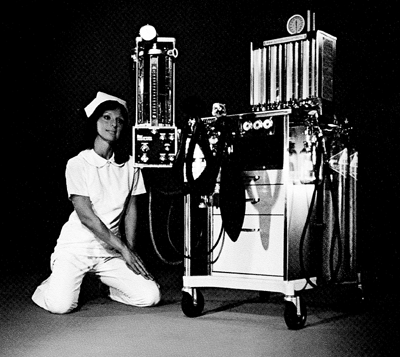In Which They Stand At The Vanishing Point
 Tuesday, June 26, 2012 at 11:11AM
Tuesday, June 26, 2012 at 11:11AM You can find the first part of this series here.
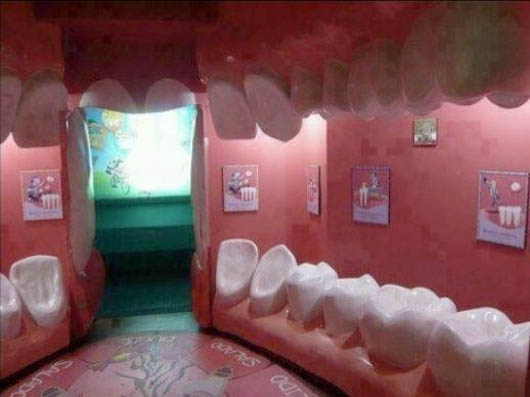
Smile If It Hurts
by ALICIA PUGLIONESI
The actor Steve Martin is not a dentist in that he doesn't have a degree in dentistry. He's done other things, like playing the banjo and writing some books. But he is actually also a dentist, in the abstract sense, in his soul.
Who am I to make this diagnosis? In our culture dentistry has certain connotations. For awhile people thought it was funny to say that dentists had the highest suicide rate of any profession. The idea is that they have traded their souls for the hollow trappings of upper-middle-class leisure. They buy boats that they name “Bicuspid Barge” or “Tooth Ferry" and then they end it all.
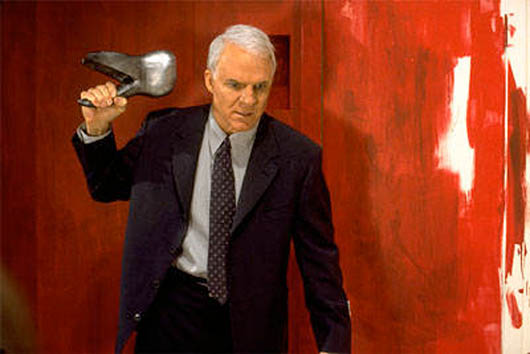
Towards the dawn of his filmic career Steve Martin played a dentist. It was 1986, he was ebulliently sadistic and brutal, his oiled brown locks tossed across his forehead, strutting down a nightmare sterile white medical hallway – at the same time wicked and sadly cheap. Martin's character was undone by his own diabolical weaknesses, but before that part of the film we get to see him gyrating and yanking gleefully. Perhaps the character of Orin Scrivello, D.D.S. in Little Shop of Horrors wasn't scripted with much in the way of psychological complexity, but his air of reckless abandon bespeaks an inner void. The emotional numbness that allows him to so profitably inflict pain also forestalls genuine human connection. He suffers an unhappy fate, the fate of a dentist.
The impossibility of genuine human connection is a big thing – problems with intimacy – a generational thing that has eclipsed neurosis, the generational thing of an earlier generation. But dentists were having that problem from the beginning. The invention of dental anesthesia drove at least three men to miserable, lonely deaths. This is the foundational dilemma of dentistry: visceral proximity, emotional remove. The dentist stands at the vanishing point where you slip out of consciousness or become enveloped by your own pain.
Fifteen years later Steve Martin played a dentist again. Again, he did dark and dangerous things that lay waste to our culture's cheery faith in modern medicine. This faith conflates medical, moral, and aesthetic authority. It exists to be luridly violated, both in fiction and in life.
It might be a peculiarly American pathology, at least American in origin. Frank Norris's fictional dentist McTeague was a gold miner, then an (unlicensed) dentist, then a gold miner again. A burly, stupid man with a desire to rise in the world (this related perhaps to the ministrations of his saintly mother and the beatings of his alcoholic father). His dingy dental parlor above the local post office exudes “a mingled odor of bedding, creosote, and ether.” He fantasizes about a “huge gilded tooth, a molar with enormous prongs” that would mark his hoped-for dental empire. When the giant gold tooth actually materializes, a gift from McTeague's lottery-winning girlfriend, his feelings towards it become increasingly sexual.
McTeague is billed as “A Story of San Francisco,” which is to say, a story of the end of the world. McTeague the dentist dies in, yes, Death Valley, handcuffed to the body of his friend whom he has just murdered. This novel, about tooth-fetishism, gold-mania, and other American fixations, was published in 1898. It reflected back upon a century when humans began to gain mastery over the appearance of their teeth – just another destabilizing development in a stable of modern woes.
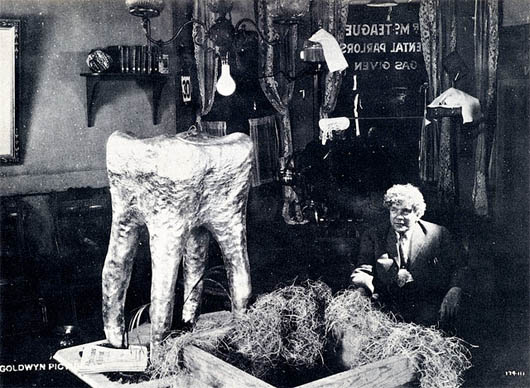 Erich von Stroheim's 1924 film version of McTeague
Erich von Stroheim's 1924 film version of McTeagueThat century, the nineteenth, began with American teeth in a predictably sorry state. Physiognomy, the art of reading character from signs on the body, taught people that ugly teeth signaled an ugly soul. However, fluoride had not been discovered. Dentists stepped up during this century, with the aid of new technologies, from their place as lowly craftsmen to a role as professional arbiters of beauty and pain. Gross transgressions of propriety proliferated during the murky middle decades: the invention of dental anesthesia meant that patients lay inert at the mercy of strangers in seedy fly-by-night dental parlors. Many women refused to visit the dentist without their husbands or fathers present.
Naturally dentists of a nobler character were outraged by the exploits of their low-class compatriots. They put in place certain professional safeguards, bodies of oversight, regulation, and enforcement. Through strenuous efforts of self-policing, they gained admittance to the white-tiled halls of proper medicine. It was a long process. By mid-twentieth-century, you would not barter chickens with your dentist, you would not accuse your dentist of picking your pockets, and you would not tell your dentist what was best – all things that had formerly been more or less the case.
In the 1920s, the newly-formed National Dental Association (NDA) became very interested in immigrants, good people to be interested in if you're looking to flex your tenuous authority. The dentists argued for a causal relationship between clean, straight teeth and clean, straight living; in studies on immigrant children, they claimed that poor dental health and failure to visit the dentist produced bad behavior in school. Bad behavior, disobedience, urban unrest, the radical politics of the underclasses: all became conflated in the new propaganda of dental hygiene. Good-looking teeth made good citizens. Dentists were the gatekeepers of assimilation. They made themselves necessary and this was highly profitable.
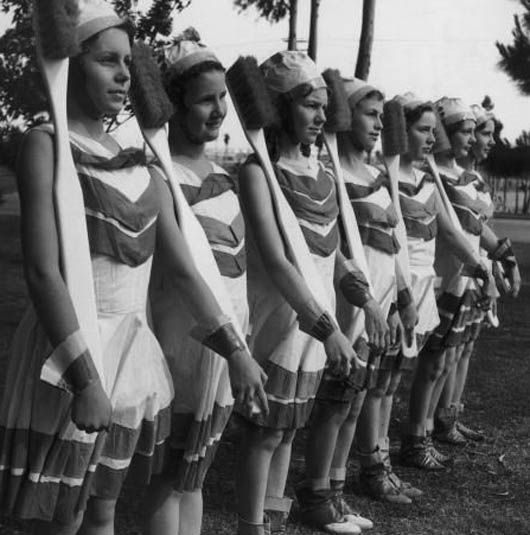 Toothbrush brigade, an initiative of the Long Beach Dental Society's “Save the Teeth” campaign of 1950.
Toothbrush brigade, an initiative of the Long Beach Dental Society's “Save the Teeth” campaign of 1950.
Maneuvers for indispensability are a sign of unstable ground. The dentist triumphant, sorting the good citizens from the bad, soon became a supremely compromised figure. Dentists in literature of the 1950s and beyond were somewhat less than heroic. The dentist in Updike's Couples is a foul man, impotent, greedy, “obsessed with decay.” E.L. Doctorow's Book of Daniel features a “leering dentist” in the role of selfish betrayer. Philip Roth has a go at the profession: Henry Zuckerman in The Counterlife is another sorry specimen, weakly cheating on his wife with his dental hygienist. These were decades of surfaces, facades, crowns and bridges hiding unspeakable things, unnameable discontents. As in centuries past, the dentist was an ambassador of the corruption of the material body, with the suspect power to conceal it at will. He might bear within him any number of squeamish truths about humanity's inner rot, which would rot him too, in turn. It was not a thing for polite people to think or talk about.
Our inner rot is of course also the stuff of psychoanalysis, a thing that Americans in the 1950s found both scandalous and irresistible. Is psychoanalysis just dentistry by another name? Thomas Pynchon, in the guise of Dudley Eigenvalue, D.D.S., argues that it is. The novel V. features this persistent psychodontist staking his claim as a repository for necessary truths: "psychoanalysis had usurped from the priesthood the role of father-confessor. Now, it seemed, the analyst in his turn was about to be deposed by...the dentist." Usurpation for the sake of reclaiming a birthright is a legally murky area.
McTeague's innocent-enough golden molar – innocent, at least, in the purity and simplicity of its perversion – is a thing of the past by the 60s, and we have instead Pynchon's Golden Fang, a murky dental cartel that controls Los Angeles with invisible strings. The novel Inherent Vice is set in a drug-saturated 1969 – men in a white coats with yachts inspire paroxysms of paranoia. Nevertheless, it is “a bunch of honkey dentists,” the Golden Fang syndicate, who ultimately supply the dope. They deal simultaneously in the drug trade and the rehabilitation trade; they are gatekeepers of a revolving door that promises an escape from the system followed by court-mandated reintegration into the system. They own a schooner of ambiguous provenance.

Such is the broad sweep of dentistry – from golden molar to Golden Fang, from laughing gas to psychodontia. Pynchon of course wrestles with the spirit or spirits of the age, swinging for entire centuries. But where do these cosmic shifts leave an individual answering the call of oral hygiene? What remains for a dentist who just wants to do his or her job, and lead his or her life, in a quiet eddy of history? These are congenitally unhappy men and women, popular culture tells us. For them it is either boredom or pain. Both dentist-Steve-Martins are deeply sad, both of his dentist films would be categorized as “dark satire.” In middle age, though, the sadness is below the skin – slow-dawning despair.
Novocaine is not the only fictional treatment of dentistry in which a dentist extracts all of his own teeth. It's not the only treatment of dentists as drug-pushers or dentists as sad men who cheat on their wives. You do not need to be a dentist to have a ridiculous affair with a character played by Helena Bonham Carter. The joke isn't even that it goes so far, that you see the mundanity of a dentist's life unspool while he remains the same uninteresting dentist. "Lying is like tooth decay," dentist-Steve Martin says in the voice-over narration. That's the joke: a tidy moral. He knows that it is a small, feeble way of making sense of the world. We replace philosophy with something that is sort of a science, sort of a healing art, sort of an anesthetic.
Alicia Puglionesi is the senior contributor to This Recording. She is a writer living in Baltimore. You can find an archive of her writing on This Recording here. She last wrote in these pages about Margery Kempe. She tumbls here.
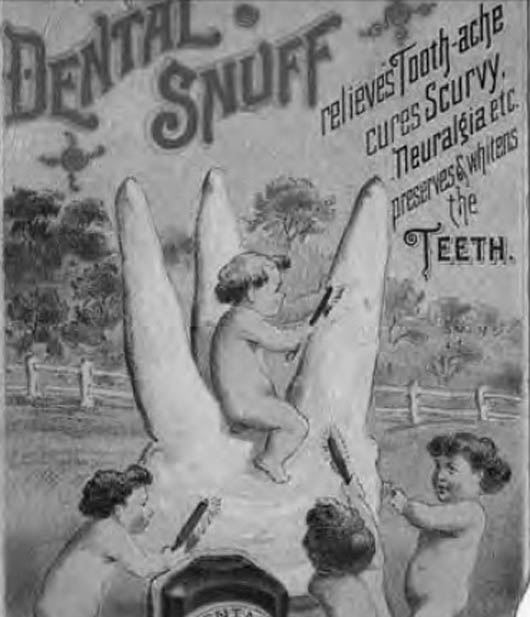
"Clear the Room" - Guv'ner (mp3)
"Baby's Way Cruel" - Guv'ner (mp3)
"Cameo (Version)" - Guv'ner (mp3)
